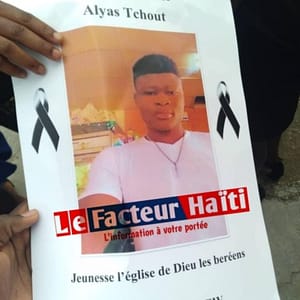Music occupies a prominent place in the daily lives of millions of people, acting as a vector of considerable human emancipation. For some, it is seen as the highest form of expression humanity has ever created. Indeed, many people find unwavering support in music. The music industry has been able to anchor itself deeply in our cultures thanks to a diversity of genres such as Pop, Salsa, Reggae, Hip-Hop, Trap, and Drill, the latter genre being at the heart of our discussion among many others. However, it is difficult to understand the functioning of a society without an in-depth understanding of its musical culture, which, in certain cases, can prove to be the best way to decipher its codes.
For some time now, a particular musical genre, Drill, has become a sensation on the internet and inspires a large number of young people around the world. Born in the 2010s, this trend has seen the emergence of several figures such as Pac-Man, Chief Keef, Lil Reese, Fredo Santana, among others. Originating in Chicago, a city then known for its high rates of crime and illicit trafficking, Drill quickly spread worldwide. However, this musical genre is often criticized for its violent lyrics, reflecting a glorification of wrongdoing.
Drill finds particular resonance in ghettos and disadvantaged areas, where it can cause frustration and incomprehension, varying greatly depending on the environment and country. In Haiti, traditional songs and Compas struggle to capture the interest of young people, who prefer Drill, often under the disapproving gaze of their parents. This style often finds its center in the promotion of violence and drug consumption, sometimes sexist and hostile to the emergence of a feminine era, openly challenges the State and the system in place, without the authorities or the Ministry of Culture does not seem to be taking any concrete measures.
Not stopping there, this style raises the question of its influence on local gangs.
Does drill contribute to the evolution of gangs in Haiti? Several Haitian artists compose in this rhythm, they disguise the criminal life, make it attractive, make the illusion of power and ill-gotten freedom but never the bad sides, not to mention that nowadays some of them are well-known gangsters, not bothering with a metaphor to describe gang gore. And yet, failing to be censored, they are all the rage in the Haitian music industry of drillers, hence the subject of this text which is a questioning of the consumption of the latter by the population, particularly children. at young ages, newly dedicated to learning.
According to UNICEF, 61% of Haitian children do not have access to primary education, the majority living in precarious conditions, particularly in ghettos. These children are exposed daily, directly or indirectly, to Drill, while the remaining 39%, although less exposed, are not immune to its influence. Drill, with its often transgressive content, challenges established moral norms and is gaining ground at an alarming rate. The worst thing is not the harmful influence that this can have on young minds, which can change their outlook on what is acceptable or not, to find it normal to exercise this kind of violence, but rather that it makes them potential candidates to integrate gangs through propaganda. We explain to our disadvantaged kids that the key to salvation is to hold a weapon, between hopeless misery and rewarding violence the choice is quickly made.
Drill seems to be becoming a threat in the music industry, to the point that foreign powers are putting some restrictive measures in terms of lyrics. England only recently put an end to this trend, a rhythm considered contrary to societal norms. In Haiti, should we do the same? Yes or no? With weak institutions the State cannot behave as a master. You just have to hold the binoculars to see the damage being done in the state jungle. We are starting to legitimize corruption which is a handicap to our economic development and here we are doing the same with music.
The drill has become a symbol of resistance, a source of pride for abandoned men, killers, rapists, gangsters. To be fair, let’s not doubt that there are good sides to drill. But in our society (Haiti) in all conscience, the excesses of the Drill must not go unnoticed and in a future perspective we can envisage the harmful repercussions which would result in a few years.
Finally, music, a reflection of the culture of a people, must be aligned with the values and moral standards of society. A society that aspires to greatness must value and harmonize the various aspects of its culture, including musical ones, with its ethical principles.
Evens MATHIEU
•Student of History in Countersinging at the French Institute of Haiti – IFH •Student of Political Science – INAGHEI •Student of Legal Science – FDSE










